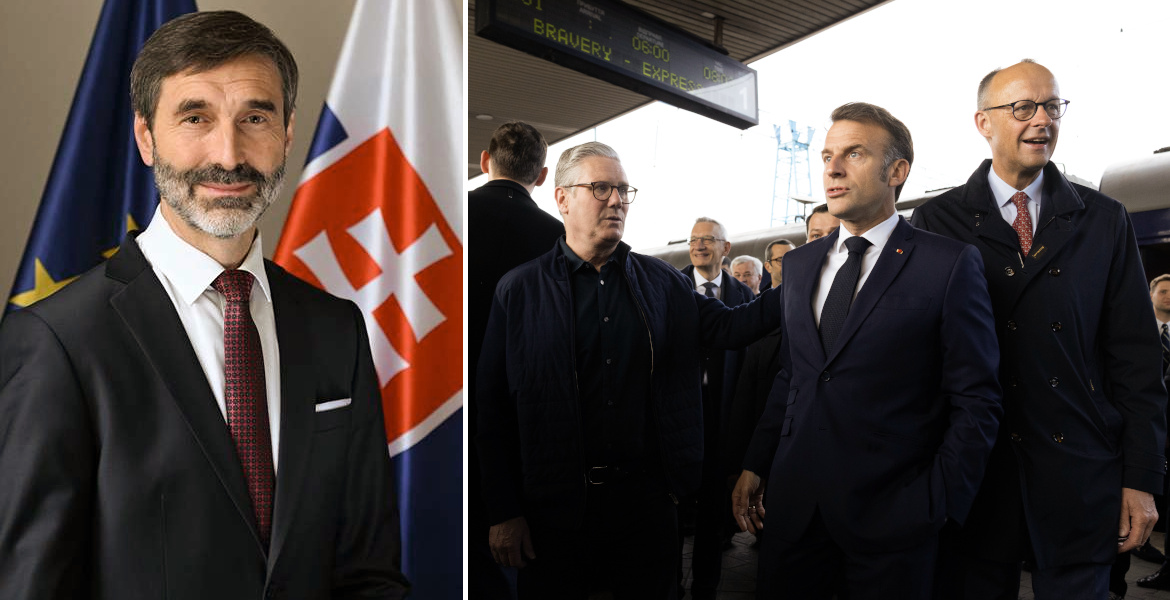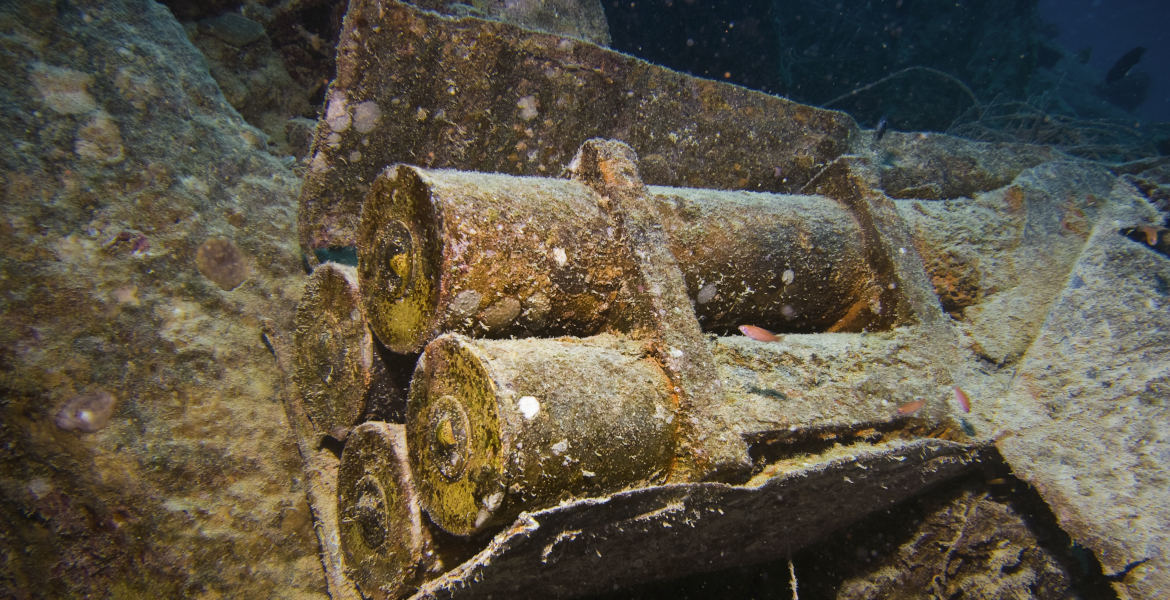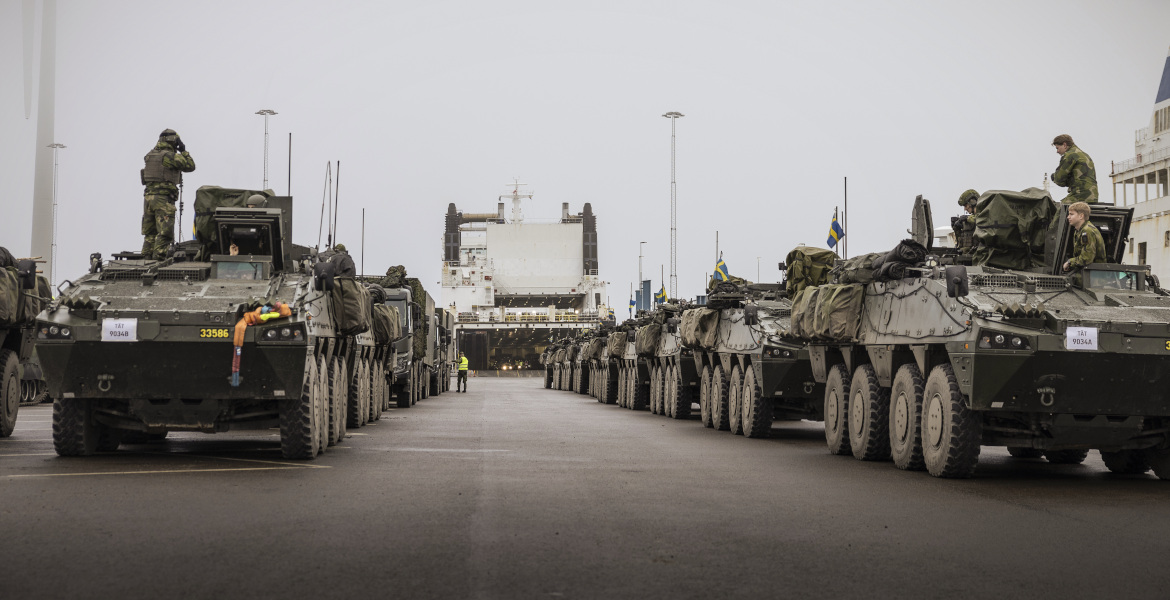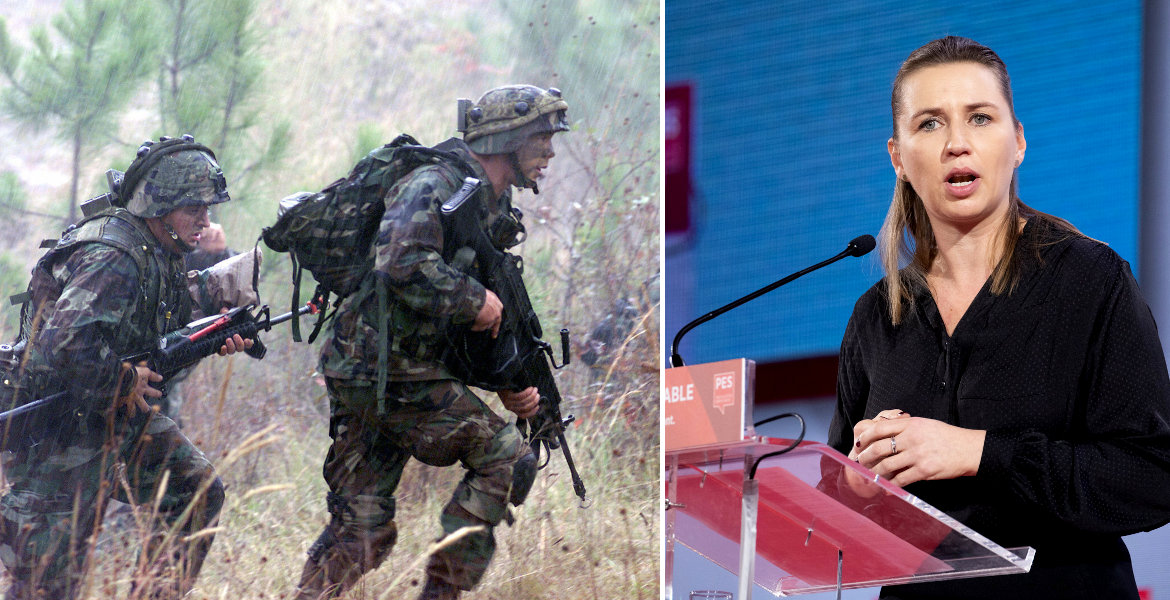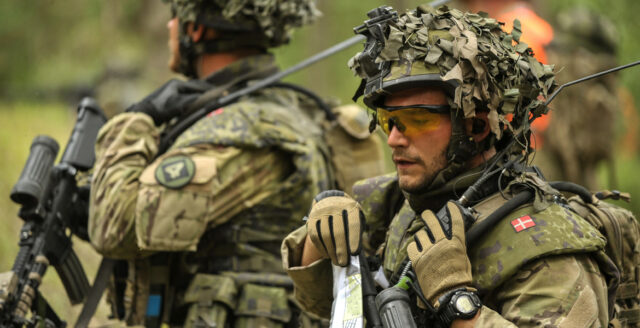This weekend’s national conference, Folk och Försvar (People and Defense), will bring together leaders to discuss issues related to Sweden’s defense and security policy. The conference will “shape a future vision and identity for defense and security policy” after the country’s government decided to abandon centuries of non-alignment for membership in the US-led military alliance NATO.
Each year, the Central Association for People and Defense organizes a “national conference in a mountain setting” that brings together Swedish government politicians, military, intelligence, media and business leaders.
In previous years, the focus has been on combating criticism of climate policy and covid-19 vaccination campaigns. This year’s focus is on the war in Ukraine and the historic shift in Sweden’s political leadership from traditional non-alignment to seeking to join the NATO military alliance.
The conference will begin on Sunday, January 7, when Sweden’s foreign minister will address the future of Swedish security policy. On the same day, participants will also ask questions of Swedish Foreign Minister Magdalena Andersson in a session titled Sweden in a New World Order.
Finland’s ambassador to Sweden will also be present to talk about Finland, NATO and long-term support for Ukraine.
“Threats to Sweden”
A recurring theme is that Sweden is said to be “threatened” in various ways from within and without, and several of the program items reflect this kind of perception. Minister of Justice Gunnar Strömmer (M) will speak about “the changing security situation”, and representatives of the military intelligence service Must, the Swedish Defence Radio Agency FRA and Säpo will also discuss the topic during the event entitled Threats to Sweden – a ‘perfect storm’?

Magnus Hjort, Director General of the Swedish Psychological Defense Agency (MPF), will also be present to talk about “threats and external influences”.
There will also be a strong focus on Sweden as a future NATO country, where Prime Minister Ulf Kristersson will share his vision for Sweden’s future as an ally, and where NATO strategist Angus Lapsley has been invited to speak on A changed alliance in a new world.
Sweden’s Supreme Commander Micael Bydén will also attend the event to discuss The role of the Swedish Armed Forces in NATO.
“The commitment of the whole population”
Much energy will also be devoted to discussing the theme that Sweden’s security is the concern of the entire Swedish population. Carl-Oskar Bohlin (M), Minister for Civil Defense, will speak about “creating societal resilience”.
We need to talk about duty! and The commitment of the whole population are two other points on the theme, and Sweden’s strategy for military escalation and high alert will also be discussed in several points, as well as strategies for leadership in “crisis and war”.

Even “democracy” itself is said to be under threat. How does democracy survive to the next generation? is one of the topics discussed.
Food as a political tool, Trade relations and geopolitics, Human rights in an inhuman world, and The new non-peace – what awaits Sweden? are some other examples of the event’s agenda.
Diverse group of participants
It should be noted that the moderator for this year’s event is former SVT profile Karin Hübinette, who is now project manager for the think tank Future of Democracy, where former EU minister Cecilia Wikström and former TV4 director Jan Scherman are also listed as “senior advisors”.
The neo-conservative profile and writer Patrik Oksanen, known for his commitment to NATO and his work against dissident opinion makers and media channels, which he has mainly linked to the Russian regime, also participates in the seminar What kind of future are we facing?

The political editor-in-chief of Schibsted’s Aftonbladet newspaper, Anders Lindberg, will also speak, as will MSB’s director general, Charlotte Petri Gornitzka, who has previously been accused of corruption and links to the globalist think tank World Economic Forum.
Folk- och Försvar’s board is chaired by Jan-Olof Jacke, CEO of the Confederation of Swedish Enterprise, and vice-chaired by Susanna Gideonsson of the Swedish Confederation of Trade Unions. The Swedish Bar Association, Save the Children and the youth organizations of the Centre Party and the Christian Democrats also have representatives on Folk- och Försvar’s board.
Affiliated member organizations include Swedish trade union umbrella organization LO, the Swedish Bankers’ Association, the Red Cross, the Church of Sweden and the political youth organizations.
Security policy identity
The activities of the Central Association are mainly financed by a large grant from the Ministry of Defense, membership fees and participation fees for conferences and study trips. Some projects are also funded by project grants.
“Sweden’s application for NATO membership in 2022 marked a turning point in the country’s defense and security soul, a change that is now undoubtedly beginning to shape our national identity. But the question remains: how? In this new, turbulent world, it is also necessary to shape a future defense and security vision and identity. We need to define not only what Sweden is today, but also what we want to be in this changing world”, the organizers wrote in a press release.
According to their own statement, the main purpose of the conference is to “initiate a journey by highlighting the building of a robust total defense and exploring the contours of the new Swedish defense and security identity. We focus on highlighting both established and newly formed structures that play a crucial role in this change”.


